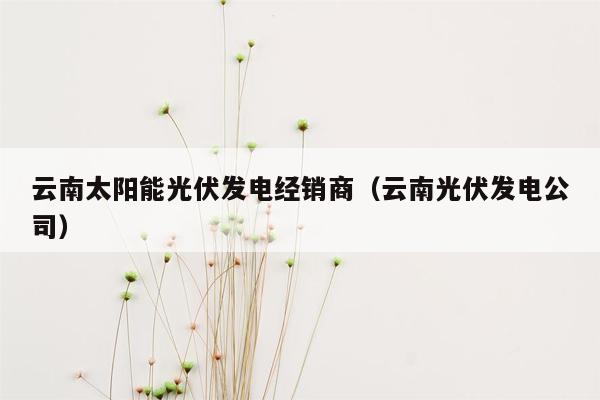1up主机能玩多少版权游戏的简单介绍
本文目录一览:
fc游戏中1up代表什么?
在wikipedia查的,原文见下。简单说来,1UP最早是指多人游戏中为选手记分的区域,表示1号选手正在进行游戏('Player One is up at the machine' )。直到格斗类游戏的出现,1UP被缩写成为1P(拳皇),表示选手的选择。1UP表示“加命”是从supermario流行过来的,clear?
The original meaning of "1UP" in multiplayer-capable 1980s arcade games was to mark the player's score area. '1UP' would indicate 'Player One's score', '2UP' would indicate 'Player Two's score'. It was common to show both scores on screen at once, with the high-score area in the middle of the score row.
The precise derivation of the phrase is a little unclear. The literal meaning would seem to be 'Player One is up at the machine' in multiplayer games both 1UP and 2UP were visible at the same time but normally the current player's text would blink on and off. If it were simply an abbreviation for 'Player One' one would expect to see '1P' rather than '1UP'. In any case, for a long period in the 1980s, even in a single player game it was very common to see the score field labelled as '1UP' rather than the more obvious 'Score'.
Extra life
In current gaming console terminology, however, 1-up refers to the acquisition of an extra life during the course of a game.
The inclusion of extra or bonus 'lives', like scoring bonuses, also derives from pinball. In pinball, the player has multiple balls (often three), and plays until a ball is lost in the gutter, at which point the next ball is loaded and the game continues. When all balls are lost, the game is over. Early arcade games took this same play concept, replacing the ball with a 'life'. Extra lives, like extra balls in pinball, could often be earned by scoring a certain number of points, or fulfilling some other complicated in-game condition.
The inclusion of extra lives was very common in videogames from the 1980s on, even in otherwise 'realistic' combat-themed games. The term '1-UP' for 'extra life', however, was not a commonly used term until recently, and then mostly among the console gaming community rather than the PC gaming community.
The 1-Up Mushroom of the Mario series is the most-recognized symbol of 1-Up (in the sense of 'extra life').
One-ups (in the second sense) are very frequent in platform games and common in other action-heavy games. Very often, "extra life" is literally true. If the player character is killed extra lives allow the player to return, unscathed, for another try. The 1-Up mushroom is frequently used in pop culture as a mascot for people born during the 1980s due to the generation's widespread use of the Nintendo Entertainment System.
The "1-up" first appeared in the video game Super Mario Bros. 1-ups are usually collected as items or earned through specific accomplishments. One is usually the ultimate reward, and difficult to obtain. Many games give one-ups as a reward if enough (usually 100) of a certain object can be collected, such as coins (Super Mario Bros.), rings (e.g. Sonic) or diamonds. Also, 1-ups may be given as rewards for high scores. On some occasions the 1-up is surpassed by an even rarer extra continue, which awards a whole new set of lives instead of just one - very much like adding a credit in an arcade game. One-ups often take the form of icons of the main character's head, or other such representations such as dolls, coins, hearts, ankh symbols or mushrooms. A simpler icon of just the letters "1up" is also common.
Some games feature items that award more than one life at a time. They are usually referred to as 2-ups, 3-ups, 5-ups, etc., and are often represented by different colored 1-up icons. Confusingly, in some multiplayer games, if Player One receives an extra life, it's displayed as a '1-UP', and if Player Two receives an extra life, it's displayed as a '2-UP', to differentiate between whoever snagged the powerup first. Some games take this further by giving Players One and Two powerups specific to each player, and the other player cannot pick it up.
In some games, a 1-up also awards full health.
If the player loses all extra lives and continues, he suffers a game over.
The use of the term may come from Japanese wasei-eigo. "~ UP" (Japanese: ~アップ(碗 那 扑)) means "to raise the ability of; to increase." Other examples include "Power up" (used in Altered Beast), and "Ability UP!," used on the cover of some English study books in Japan. This Japanese shortening of English has provided us with another popular gaming phrase, level up; though Dungeons and Dragons aficionados may disagree about the origins of this oft-invoked phrase.

XBOX360上为什么没有超级玛丽? 还有魂斗罗??这些游戏?
XBOX 360上是有魂斗罗的,它运行在XBOX Live Arcade平台内
但是马里奥系列游戏却绝对不可能有,原因是版权问题。只有Wii、Wii U以及Switch这些主机才有马里奥系列游戏
玩盗版游戏可耻吗
那你问问他的系统装的是正版的吗,他就从来没有用过盗版东西?
在国外买个大作,价格是平均薪水的5%以下。是公认最廉价的娱乐之一。
中国的购买力有限,3A大作动辄三四百,季票更贵。相当于你要花10%甚至更高的月收入去购买,当然也有人会去说等打折季,可是谁会放着最新的不买,早玩早享受呢。
国内的特殊环境决定了,不可能像发达国家那样 什么都追求正版,国内对海外音响制品,尤其是没有在国内正规渠道购买的(steam国区不算,除非完美STEAM正式上线),是不会去追究版权问题的。
当年比尔盖茨就对国产那么多盗版XP 什么番茄花园 雨林木风,深度科技之类的知名盗版团队,真的放任不理?还是系统太贵了,原价在欧美也不便宜。为了在发展中国家推广才对盗版睁一只眼闭一只眼,亏点钱算啥,微软的眼光也是敏锐的,如今微软系统成为世界第一系统,地位无可撼动。
所以不用在意别人的看法,买不买正版没必要去看别人的脸色。
另外你也说了你是学生党,你换了个1万块的主机,花的不也是妈老汉的钱,所以你玩盗版的理由就是没有收入。
理性消费才是正道,以后自己经济独立要花钱的地方多了去了,还轮不到别人来说三道四的。
都是玩家。没有正盗版之分。现在的游戏厂家也比较精了,防止盗版我就做线上内容支持联机。离线内容也比较少。如果真的单机没有赚头也不可能是盗版存在所影响了。那就是游戏行业大势所趋了,他大可以做成线上游戏。
Ps4是正版游戏和盗版游戏都能玩的吗?
PS4只能玩正版游戏。
相关介绍:
PS4上的游戏均为正版游戏,在PS4主机中,索尼也加入了处理器级别的加密技术,所以主机尚未正式破解。
PlayStation 4属于第八世代的游戏机,作为PS3的后续机种,并将与任天堂的Wii U和微软的Xbox One共同在市场上竞争,PlayStation 4采用以AMD为基础的x86-64架构处理器,与使用CELL架构的PlayStation3不同。
扩展资料
主机特点:
官方宣称PS4主机的运算能力大约是PS3主机的十倍,游戏画面进一步提升分辨率到1080P。对比PS3,PS4加入不少特色,例如跨游戏语音聊天功能、转型成真实好友构成的网络以及通过Ustream和Twitch网络串流实况转播游玩画面。
据称有更多的PS4机能将会陆续推出。在主机开发过程中,为了避免过于追求性能而使制作游戏软件更加困难的情况的发生,索尼放弃了PlayStation 3原有的设计,重新选择了与个人电脑相同的 X86 构架,使得游戏开发更加容易;但缺点是无法向下兼容PS3、PS2或是PS1游戏。


